Best VPN Providers for Linux can be a free operating system that is a great alternative for people concerned with their privacy. this may be due to its ASCII text file and it is extremely customizable. Also, it is believed to be more secure against cyber threats than alternative platforms like Windows and macOS.
However, your web service provider (ISP) and alternate third parties will still have access to your information. which is why you would like to install a virtual personal network (VPN) on your Linux operating system. Unfortunately, the alternatives are somewhat restricted as only some quality VPNs are compatible with Linux.
In this guide, we will investigate the five best VPN services for Linux, how to install a VPN on Linux, and much more.
Table of Contents
Top 5 Best Linux VPNs – The Quick List
Do you have little time? Here is a sneak peek of the best VPNs for Linux.
- 1. NordVPN – Our top choice VPN for Linux. it’s easy to install and use, good for unblocking streaming websites, and offers strong security.
- 2. ProtonVPN – The best free VPN for Linux. The app is exceptionally easy to use, secure, and wonderful for unblocking geo-blocked content.
- 3. ExpressVPN – Compatible with various Linux distributions. Plus, it bypasses even the most stubborn geo-blocks, has high-speed servers, and uses advanced security features.
- 4. Surfshark: Does not limit the number of connections. In addition, it provides high speeds, reliable security features, and affordable packages.
- 5. IPVanish – Cheap VPN for Linux. It offers high-speed connections on select servers and a powerful list of privacy and security features.
Why is a VPN for Linux Necessary?
Linux will be better than the alternative operating systems when it comes to malware and virus protection. However, you still want a VPN if you are a Linux user. Here’s why.
Maintain Your Anonymity
Although Linux is less prone to malware attacks, it does not have any measures to cover your web traffic. A VPN can log your traffic and change your computer address. which may make it impossible for third parties to observe or track your online activities.
WiFi Security
These days, Wi-Fi hotspots are available almost everywhere from schools, retail stores, airports, etc. However, these are insecure networks and hackers will simply spy on your online activities and even steal your information. A VPN encrypts your traffic, making it impossible for anyone to access your data.
Evade Geo-Restrictions
Many alternative apps, websites, and online services limit their content to specific regions due to copyright and licensing issues. However, a VPN helps you connect to a server in another country, bypassing geographical restrictions. So as an example you will be able to be inside the GB and connect to a US server this can even make it look like you are in the US at intervals.
Torrent Unrestricted
While completely legal, several ISPs still limit torrenting due to association with proprietary material. In most cases, they will limit the size of the information or maybe punish your account if you find yourself downloading torrents. Using a VPN can make your torrenting activities anonymous, and even your ISP won’t see what you’re doing.
Best VPN Providers for Linux:
Many VPN providers offer a Linux buyer, but only a few are convenient to use. These are the best Linux VPN services out there.
1. NordVPN

Without a doubt the most effective VPN service for Linux. It features dedicated Linux support, military-grade encryption, and server obfuscation to support sensitive activities of Linux users.
- 5,000+ servers in 60 countries
- Automatic Kill switch
- Double VPN feature
- P2P friendly
- 6 connections simultaneously
- 30 days money-back guarantee
- Double encryption
- Web protection
Pros
- Emphasizes security and privacy
- Unblocks popular streaming sites
- Super-fast servers
Cons
- No free trial
NordVPN is the best VPN for UNIX (Ubuntu), backed by our extensive testing and analysis. it’s reasonable, unblocks all key streaming sites, and offers a UNIX command-line application.
Unfortunately, the command line does not have a graphical computer program (GUI). However, it is much easier to line up and use than to set up servers manually. Also, the app has spectacular options found in different operating systems, such as ad blockers, malware filters, and automatic kill switches.
The provider has more than five thousand ultra-fast servers distributed in sixty countries around the world. it will defend your connections with 256-bit AES encryption, good forward secrecy, and IKEv2 protocol. Furthermore, it observes a strict no-logs policy and does not retain any logs to maintain your anonymity.
Also, NordVPN is good at unblocking content and can bypass streaming restrictions like Netflix, Disney+, Hulu, etc. Fortunately, their dedicated servers for streaming provide you with a flawless watching experience.
2. ProtonVPN
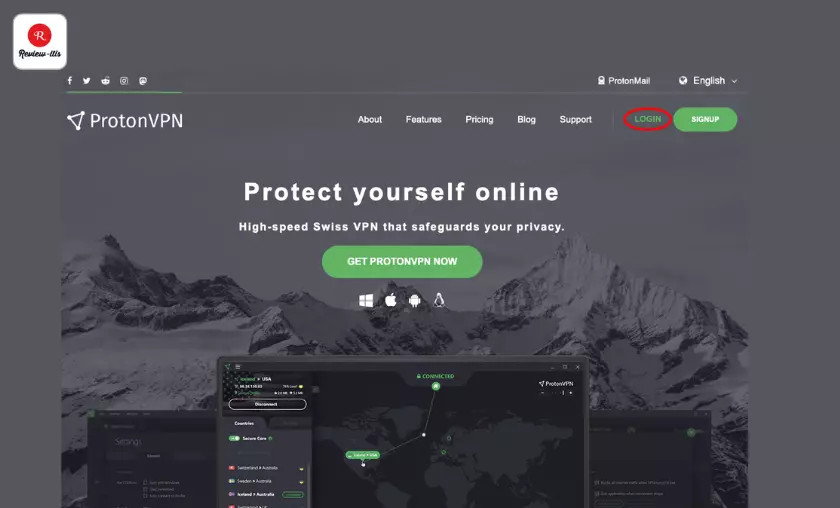
An affordable approach to travel for UNIX these days. it’s an easy interface, superior security, and complete information privacy with no logs. Also, it is the only free UNIX VPN on this list.
- 1,600+ servers in 63 countries
- NetShield adblocker
- 30-day money-back guarantee
- AES-256-bit encryption
- No-logs policy
- P2P support
- Up to 10 simultaneous connections
Pros
- Strong privacy and security
- Supports torrenting
- Unblocks streaming services
Cons
- Lacks a live cha
ProtonVPN is another glorious VPN for streaming content abroad on UNIX. This is because it is a line of software that allows you to easily access and manage servers from anywhere.
The best problem regarding the ProtonVPN UNIX application is that it is an ASCII text file, which means that it will examine and modify the code. Also, it works fine with Ubuntu, Kali, Fedora, Solus, and Arch Linux/Manjaro. Also, OpenVPN is the default protocol on all connections, and will simply switch between servers.
In addition to offering cheap packages with a 30-day money-back guarantee, ProtoVPN also offers a free service. It does not limit the information, but it allows you to connect only 1 device and access servers in three locations.
3. ExpressVPN
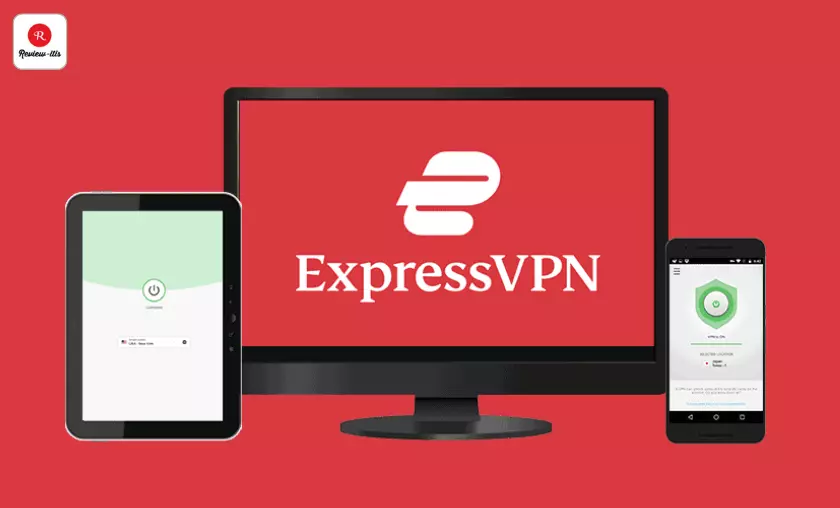
With excellent unblocking and geo-blocking bypass capabilities, ExpressVPN could be a high-quality and secure VPN service for UNIX systems.
- 3,000 servers in 94 countries
- Supports P2P
- Allows up to 5 simultaneous connections
- AES-256-bit encryption
- Trusted Server technology
- 30 days money back guarantee
- IP leak protection
- Automatic kill switch
Pros
- Comprehensive privacy and security features
- Substantial server network
- High-speed connections
Cons
- Expensive than its rivals
ExpressVPN could be a popular VPN for UNIX due to the native app, exceptional security, and blazing-fast speeds.
The vendor introduced the UNIX application in 2016. Unfortunately, it lacks the graphical user interface and only runs on a command line interface. However, it is much easier to manage than downloading configuration files for each server you want to use.
ExpressVPN has a large network with more than 3,000 servers in 94 countries. luckily it keeps the server list up to date to improve performance. Additionally, TrustedServer technology can ensure that servers do not retain any information.
The only downside to ExpressVPN is that its plans are more expensive than those of its rivals. Fortunately, you will benefit from the 30-day money-back guarantee and verify the service risk-free. furthermore, it works fine with Ubuntu, Fedora, Debian, CentOS, and Kali.
ExpressVPN simply bypasses the restrictions of common streaming services such as BBC iPlayer, Netflix, HBO max, Amazon Prime Video, etc. Plus, with high-speed servers and unlimited data, you’ll be ready to watch radical HD content.
4. Surfshark
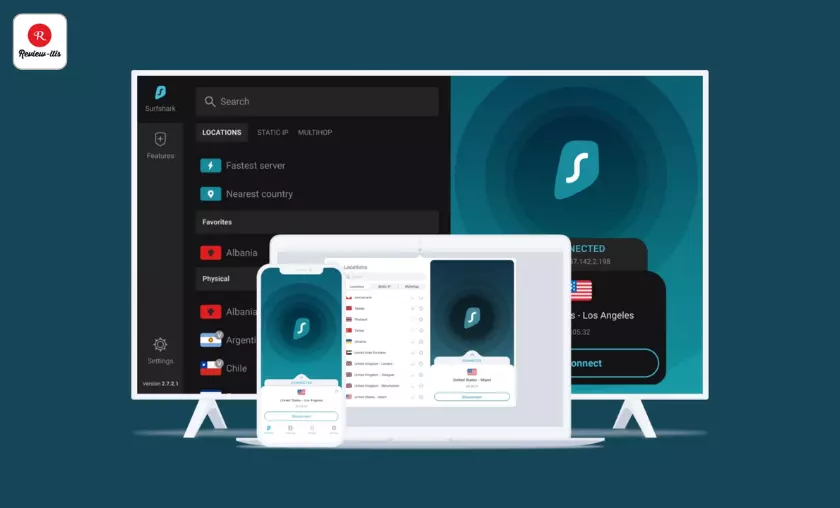
A pocket VPN for UNIX users. Its robust security, complete privacy and anonymity, server obfuscation, and blazing speeds bring the VPN fully in line with Linux notions of privacy.
- 3,200+ servers across 65 countries
- Camouflage mode
- 30-day money-back guarantee
- AES-256-bit encryption
- MultiHop (Double VPN) Mode
- Allows P2P sharing
- Allows unlimited simultaneous connections
Pros
- Plenty of privacy and security features
- Does not retain identifiable data
- Reliable customer support
Cons
- Some servers are occasionally slow
Surfshark is the best VPN to unblock sites on the UNIX operating system. they are cheap plans and offer a command line application for Debian and Ubuntu distributions.
The provider has more than 3,200 servers in sixty-five countries to allow you to access content and applications that are not available in your region. for example, it will unblock movies and TV shows on Hulu, Netflix, and DAZN, etc.
In addition to streaming, the VPN also supports P2P sharing. Their servers manufacture spare speed to handle even gigantic downloads. Fortunately, it religiously follows a zero-logging policy, so your torrenting activities can remain non-public.
Surfshark can protect your network traffic with military-grade 256-bit AES encryption and ideal forward secrecy. In addition, it also has an Associate in Nursing automatic kill switch, DNS leak protection, and a variety of security protocols.
Cloaking mode can hide your VPN activity and make your association look traditional. Surfshark can be a useful feature if you reside in a country with strict internet censorship like China.
5. IPVanish
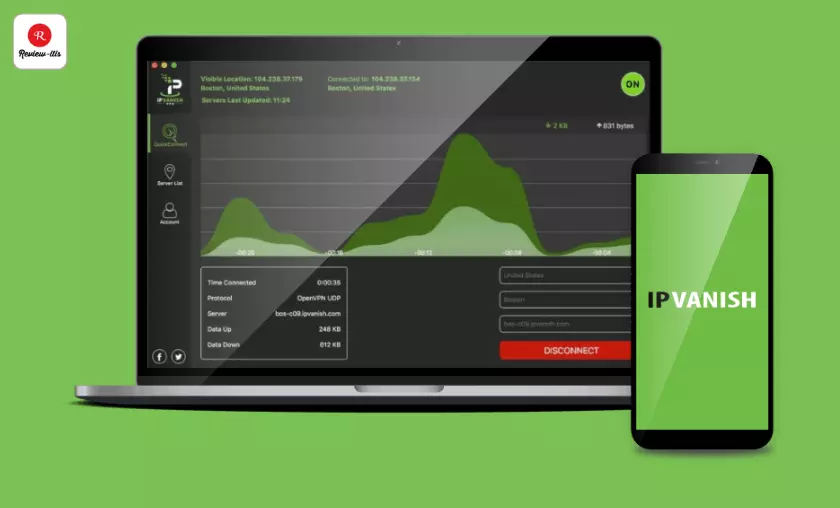
This service makes you anonymous while doing any task online. Due to its unlimited matching association support, IPVanish can be a very suitable VPN for UNIX OS users to protect all devices.
- 2,000 servers in 75 locations
- No-logs policy
- 30-day money-back guarantee
- Allows P2P connections
- Kill switch feature
- AES-256-bit encryption
- Unlimited simultaneous connections
Pros
- Highly configurable
- Doesn’t monitor your activities
- Reasonable pricing
Cons
- Unable to bypass all restrictions
IPVanish supports the UNIX operating system platform with easy-to-follow tutorials for Ubuntu, Fedora, Mint, Kali, Lubuntu, and Pop! Operating system by system seventy-six.
It will protect your end-to-end connections over some time with 128/256-bit AES encryption. This can be strong security to prevent your ISP, hackers, advertisers, and third parties from observing your activities. Also, IPvanish does not log your logs to maintain your complete anonymity.
IPVanish VPN will bypass the geo-restrictions of common streaming services like Fox North American, Hotstar Republic of India, BBC iPlayer GB, etc. In addition, it will modify it to view the blocked content on Youtube. But sadly, you can’t bypass all the restrictions.
Tips on How to Choose a Reliable VPN for Linux
Here are the most important factors to consider when choosing a VPN for UNIX operating system:
- A dedicated Linux app with a simple user interface or command line interface can make the VPN easy to use. However, manual setup is often laborious, and simple tasks like connecting to a server require additional steps. So, if simple usage is your big idea, go for a VPN service with an avid buyer.
- Distribution support is crucial once a VPN is used on Linux. If the VPN you’re exploiting isn’t supported by Mint, you’ll need to go through it.
- Security measures vary considerably with different VPN providers. However, some of the crucial options to consider include military-grade cryptography, kill switch, ad/malware blocker, and DNS leak protection.
- Device support is a vital thought if you intend to use the VPN on your smartphone, laptop, and PC. Several premium VPNs that support Linux even have apps for Windows, Android, macOS, iOS, and other popular platforms. In addition, you also need to pay attention to the number of matching connections that the VPN offers.
- The server network must have worldwide coverage. this can change your access no matter what you want from anywhere. Also, it is easy to find a high-speed affiliate as there will be less traffic load on each server.
- Unlocking ability could be a crucial issue to consider, especially if you reside in a very strict region with censorship. For example, if your government has illegal WhatsApp, you can connect to a server where the app is available. Also, a VPN with good unblocking ability can help you stay afloat if you are a global person.
- Speed may drop once you connect to a VPN server. a small decrease is noticeable thanks to the cryptographic method. However, some services can slow down to a crawl and even increase the ping rate. On the other hand, premium providers like ExpressVPN and NordVPN can avoid ISP throttling, which can improve your speed. You’d like a fast VPN if you’re constantly engaging in data-intensive activities like streaming, torrenting, and gaming.
- Reliable customer support can ensure help is instantly available once you want it. For example, you are sure to get quick help with 24/7 live chat. In addition to that, some providers also offer email and phone support.
- The money-back policy allows you to safely test the service and trigger a refund if it doesn’t meet your wishes. for example, a VPN company that does not allow you to verify their product before committing to a subscription may not be sure of its quality.
VPN Services You Should Avoid Using on Linux
Not many VPNs support Linux or provide restricted support. furthermore, some have many security and privacy issues. Luckily, the services we’ve listed above follow a strict no-logs policy, which means they don’t keep your specific data. As a result, hackers cannot infiltrate the provider’s servers and steal their knowledge. In addition, the company will not have any knowledge to sell to third parties or resist the application.
Also, avoid VPN services that only provide the PPTP protocol. It contains a large number of security vulnerabilities, although it is quick and easy to rebuild.
Below the area unit, are some of the VPNs to avoid:
SecurityKISS
SecurityKISS could be a top-tier free VPN for Linux, and a simple Google search will likely lead you to it. However, it is notable for bundling scientific addresses and membership records, which can compromise its security. Also, it limits data to only 300 Mbs per day in the free version.
It’s Hidden
This is a free VPN based on the PPTP protocol, so it’s obviously not secure. Also, its privacy policy is very vague and even contains typos. For example, it is only one sentence and does not pronounce the company’s logging practices.
USA
USA is another mediocre VPN that claims to provide quality service. However, your latest UNIX consumer only uses PPTP. Plus, it doesn’t have DNS servers, so your ISP will still see your online activity. In addition, it does not reveal its work practices.
TunnelBear
This is a premium VPN, but it does not offer a native UNIX client. TunnelBear requires you to go through a manual setup method, which is tedious and time-consuming.
VyprVPN
VyprVPN is also a premium service and we have even included it in many reviews. However, it is only compatible with UNIX Mint and Ubuntu. Also, you don’t have a consumer or tutorial if you’re exploiting Red Hat-based UNIX.
The Methodology We Used to Test These VPNs for Linux
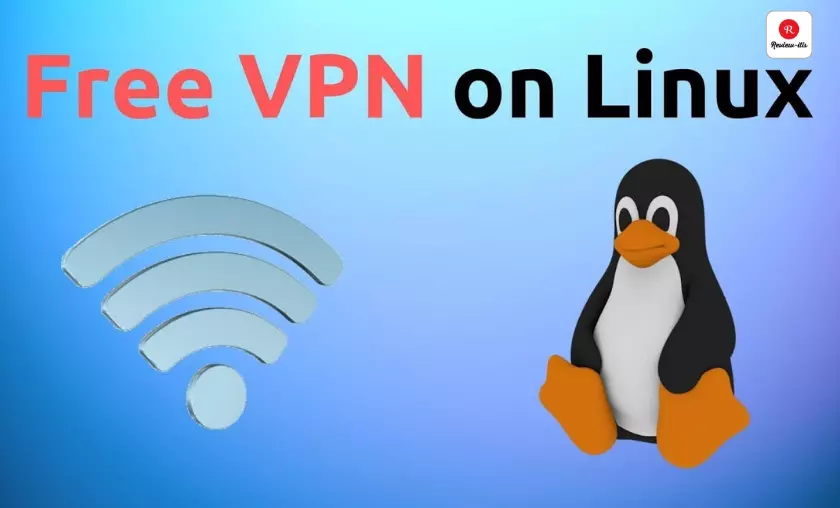
At PrivacySavvy, we tend to use thorough and rigorous strategies to verify the VPNs we tend to suggest. With these UNIX VPN services, we tend to look at:
- Associate Degree App Quality of User Experience
- Supported UNIX distributions
- Support and documentation for users.
- Manual setups with third-party VPN buyers
We put each VPN through a qualitative and quantitative check to gift our readers with a service they can trust. Tests include:
- Leak tests – We tend to check if VPNs leaked any data, including DNS, IPv6, and WebRTC.
- Speed test: We tend to connect to servers in various regions to check how they perform and therefore the speed at which they turn out.
- Bypass geo-restrictions: Several streaming services use powerful geo-blocks. Therefore, we tend to have to look for VPNs that simply bypass the restrictions of standard sites like Netflix.
Every VPN we suggest on this list has passed our criteria for quality, privacy, and security. this means that they use the latest encoding and do not record alternate data processing addresses, activity logs, or characteristic data.
Additional Security for Linux
A VPN can protect your UNIX system, however, you want to try hard for full protection. UNIX has vulnerabilities, such as alternate operating systems, that malicious actors will exploit. Here are additional tools you can use to stay secure.
- Virus pack. you can check out our list of the best antivirus currently available.
- Tripwire.
- Anti-rootkit package.
- firewalls. Our text here lists quality free firewalls, you can find one for your UNIX there.
- Safe browser extensions.
The Best Linux Distro for Privacy
Going for the UNIX distribution of associate degree ASCII text files may be a sensible move if you’re concerned with your privacy. Typical platforms like Windows and macOS are notorious for collecting personal data.
Also, they need a name to collaborate with intelligence agencies and law enforcement. Additionally, each operating system is closed source, which prevents the general public from viewing the ASCII text file to search for backdoors and vulnerabilities.
In contrast, UNIX is open source and is continually audited to remove threats. There was a time when Ubuntu played with Amazon to legalize users. However, it and alternative UNIX distributions are not in the business of marketing user knowledge to third parties.
Remember that each of the distributions is not created constantly, and some are more secure than others. Ubuntu Privacy Remix (UPR) is your best choice if you want an everyday distro with online privacy and security. this can be designed into a Debian-based Ubuntu partner that maintains user data on an encrypted external Winchester drive. Since the operating system is difficult to control, you cannot get a malware infection.
However, you will still need a VPN to protect your web traffic. Most of the services we have suggested also work well at UPR.
If UPR does not meet your wishes and you still want complete privacy on your laptop, you should choose TAILS. It stands for The Amnesiac hidden Live System and maybe a UNIX distribution created by those who designed the Tor Network.
This is a live operating system to install and run from auxiliary storage such as a CD or USB drive. the simplest problem about it is that it passes web connections through the Tor Network for further obscurity.
Linux and VPN Protocols
A VPN protocol can be a technique your device uses to connect to a secure server. they need completely different specifications and options. As an example, while some point to privacy and security, others range from speed.
Linux and Wireguard
Wireguard is the latest protocol, and many VPNs already have an area unit in the group action method. This protocol guarantees higher speed and competitive security than its competitors such as IKEv2 and OpenVPN.
Although it currently works on most platforms, it was initially free for the UNIX kernel. So this means that you will only use it within the VPN app or you will combine it manually. At the top of the list, NordVPN and Surfshark provide the protocol.
The Wireguard protocol is currently supported by OpenSUSE, Debian, Fedora, Red Hat, OpenBSD, FreeBSD, CentOS, and several alternative UNIX distributions.
Linux and OpenVPN
Even if a VPN service does not provide a buyer who is a fan of the UNIX distribution, in reality, most of them have the OpenVPN protocol. Therefore, to determine a VPN connection on your UNIX, you only need to transfer a configuration file from the server. although this can become tedious if there are many server options, it is doable.
OpenVPN can be a good protocol, however, the generic buyer lacks crucial options like kill switches and DNS leak protection. Once again, you will get third-party solutions for these. However, we like the convenience and reliability of buyers keeping company with built-in options.
How to Install and Connect to OpenVPN on Linux
In this section, we will walk you through the method of installing OpenVPN Buyer on Ubuntu. still, the procedure is similar to alternative distributions like CentOS and Mint, however, the commands may vary slightly.
- open a terminal
- Click Enter after typing Sudo apt-get install –y OpenVPN.
- Then command your admin arcanum and press Enter
- Type y and press Enter to accept all dependencies and complete the installation method
- Type Sudo apt-get install network manager network manager-OpenVPN network manager-OpenVPN-gnome and press Enter
- Enter Sudo apt-get install open easy-RSA
- Remember that you may need to change the ‘apt-get’ command to ‘yum’ with newer versions of Ubuntu.
After installing the OpenVPN protocol, you would like to find the configuration file. In most cases, you will get them from the VPN provider’s website. Note that each configuration file is associated with a particular server, so upload many for each location if possible. Also, make sure you have backups in case one of each connection goes down.
Use the following guide to attach the instructions. It should work with most UNIX distributions.
- With OpenVPN installed, command sudo OpenVPN –config inside the terminal and press Enter
- Drag and drop the .ovpn configuration file for the server you want to connect to into the terminal. the correct path is captured mechanically.
- Press Enter and note the message “Initialization sequence completed.” you will currently connect with the VPN. Note that closing the terminal window may disconnect you from the VPN, so it will only minimize it.
This is just one of the strategies to create a VPN. or it will also try the OpenVPN or Ubuntu Network Manager UI. However, this might require non-public keys or CA certificates, so make sure the provider offers these.
How to Create a VPN kill Switch in Linux?
If the VPN association is accidentally dropped, your device can still transmit your traffic over your ISP’s unprotected network. luckily it will produce a simple kill switch to prevent this from happening. In this section, I’ll show you how to annotate rules with the Ubuntu Final Firewall (UFW) application and tables.
The first step is to create a startup.sh script to align the firewall rules. They only allow traffic through the VPN’s tun0 network interface.
Network traffic can’t be routed through another network’s interface with these firewall rules. So if the VPN stops working, it removes the tun0 interface from your system. this means that your traffic will not tolerate as there is no interface and therefore the connection to the network may be closed.
After ending the VPN session, you would like to get rid of the foundations to allow your traffic to flow through their real interfaces. the best thanks to love is to disable the new app. However, you will have to be forced to produce a lot of refined teardown scripts if the UFW rules run normally. Next, you can remove the firewall rules and remove the OpenVPN script with stopping. sh.
In case you use another method to connect to your VPN, it will remove the last 2 lines of each script. However, you will need to remember to run a startup. sh manually before starting the VPN in any other way. Running the stopvpn. the sh script is not sophisticated at the end of your VPN session. You will notice that your network cannot connect until you run it.
Creating Your Own VPN
In addition to industrial VPN services, there is also an option to create a DIY VPN solution for UNIX as well as install a server. Some of the common examples include Digital Ocean and Amazon net Services. Also, there are several tools at your disposal to help you create a native VPN. They include:
- Streisand
- OpenVPN
- Algo
- StrongSwan
- SoftEther
While creating your VPN allows you to manage almost every facet of the VPN, there are some downsides. First, it’s not simple and labor intensive compared to manhandling preconfigured servers and existing applications. Second, your knowledge can still be routed through third parties once cloud services like Digital Ocean or ax are abused. Third, you will only access one server and site.
Lastly, launching your VPN means that only you and maybe a few of your friends will abuse it. As a result, it will be much easier to trace network traffic to a particular person. In contrast, the premium VPNs we suggest in this list use shared data science addresses. They bring many users together in information science, making it difficult to observe or track user activities.
A Quick Guide to Installing a VPN on Linux
There are many ways to install a VPN on UNIX. However, the type of distribution you’re mistreating can confirm the package it will install, such as Debian, tar. zest, or RPM. But still, below may be a general guide that you should follow.
- Download the VPN repository package from the service provider’s website
- Install the repository. the method may depend on your version of UNIX
- In most cases, you will have to be forced to update the list of packages
- Finally, install the particular VPN package
Once you’ve completed the steps above, you’ll open the app and use the user interface or terminal to connect to the servers.
How Do I Connect a VPN Using the Linux Network Manager?
The process may depend on the VPN provider and the protocol you are abusing. transfer the OpenVPN configuration files from the location and import them into UNIX Network Manager. Check the official VPN website for documentation. Then use the steps below to try.
- On the top right of the screen, click the network button
- Tap on VPN off and choose VPN settings from the drop-down menu
- Click the (+) icon across from VPN
- Import your config fie or choose the protocol that you want to configure and enter the details
- Click Add
- The VPN connection will now appear in the configuration window. Click the slider to turn it green and activate the VPN
Which One Is the Best Free Linux VPN
ProtonVPN could be a good option if you are on a budget and looking for an honest VPN without Linux. It is not a completely free VPN, but a premium service with a free fix. What separates it from the rest is unlimited knowledge and various other server locations.
More significantly, the company employs the mandatory security and privacy measures even in the free version. as an example, it offers 256-bit AES cryptography, retains no logs, and is based in a very privacy-conscious country, Svizzera.
In addition, ProtonVPN’s UNIX OS consumer includes a simplified GUI and can even be used through the terminal. So while the customer support will be polished, it’s much better than what you’d get with a free VPN.
There are several alternatives that we can suggest. This may be because most of them do not support the UNIX operating system, have data limits, or have security issues. These compromises don’t seem to add value, but you’ll want ProtonVPN.
Conclusion
Shifting to Linux is a positive start toward protecting your online privacy. However, there are still many security dangers, and utilizing a reputable VPN service will significantly increase your privacy.
A VPN will let you avoid streaming service limits in addition to safeguarding your online security and privacy. NordVPN is our top pick since it has a dedicated Linux app and strong security.
To read more similar articles click here
Thanks for visiting our Website. If you appreciate our work, kindly show us some support in our comments section 🙂